- Català
- Español
- English
You are here
ICTs and the transformation of education in the knowledge economy
About the speaker
Robert B. Kozma
International consultant on the use of technologies for educational reform, and social and economic development
Summary of ideas
To adapt to the knowledge society and economy, we need to change education. Society has changed, but education still looks the way it did at the start of the 20th century.
Can you describe the knowledge society?
- Many people have higher education and lifelong learning is very important.
- There is a high level of penetration of ICTs in homes and schools. ICTs are used constantly at work and at home.
- The web is the main source of information, both for educational and professional questions, and for domestic questions (health, economy, etc.).
- The young make more creative use of the web because they interact and create content; they upload comments, photos, videos, etc. They spend their whole day in this world, but use of ICTs in the classroom is marginal.
Can you describe the knowledge economy?
- We have gone from producing good and services to producing information services. This production is the motor for the world’s leading economies.
- Innovation is very important, because it is the motor for this economy.
- There have been organizational changes in companies. The pyramidal structure has been dismantled. There is a trend to create self-managing teams. We are promoting decentralization, participative processes, externalization, collaboration between profiles from different disciplines in a productive process.
- ICTs are aiding and allowing for new forms of organization.
- The knowledge economy is provoking changes in the profiles needed in terms of workers’ qualifications. Fewer under-qualified people are required for routine tasks (many of these tasks are carried out by machines thanks to new technologies). Highly qualified profiles are required, which thanks to ICTs can carry out very complex processes.
- The incorporation of ICTs in companies does not have an impact in itself. We need between five and seven years to make the most of ICTs – for staff to use them.
Can you describe education in this context?
- The way we teach looks like it did at the start of the 20th century: teaching in classrooms, with a specific group, with teachers of a specific subject and a specific timetable. Knowledge is based on airtight compartments (the mathematics class, the language class, etc.). They are assessed with examinations of the knowledge explained. ICTs have been introduced, but they are merely complementary.
- All countries coincide on the importance of the introduction of ICTs in education, but they do not see it as a catalyst for systemic change. There are plans for projects involving ICTs, but no long-term policies.
- Education laws change with the governments and policies related to ICTs are short term. This demotivates teachers when it comes time to make efforts to introduce changes; soon after, a new government will set a new line to be followed.
- The introduction of ICTs has not taken teachers and curriculums into account. Teachers lack motivation to use ICTs.
We need to follow the example of educational best practices (according to an OECD and McKinsey study):
- They offer different responses depending on the surroundings. There is no one single solution. There are custom solutions.
- Schools are committed to the success of all students. It is vital to realize how very important human capital is in the knowledge society. All students have to achieve the highest possible results to be competitive.
- Educational policies are in place for long periods of time.
- Investments are strategic.
- Teachers are key.
Robert B. Kozma establishes a scale of knowledge that takes into account the holistic context (all the social components) and links educational change to economic development.
1. Basic education. Aim for the highest levels of participation in basic education to achieve the highest levels of health and wellbeing. This is the aim, for example, in African countries.
2. Knowledge acquisition. Aim to increase participation in secondary education. This is the aim of developed economies.
The two higher levels are knowledge deepening and knowledge creation. Kozma believes that these two levels correspond to societies such as the Catalan society.
3. Knowledge deepening.
- Subjects are still taught, but to contribute key concepts. The subjects are adapted to the real world.
- There is assessment of the curriculum’s application in the real world. More than one focus is possible. There is even the possibility to analyse different solutions and which is the most appropriate.
- Teachers have to know their subjects in depth and be educational experts; they have to guide students and know that they will not understand things at times. There is also collaboration between teachers and subjects.
- Students work in teams.
- ICTs are used, especially for multimedia support to simulate complex subjects. There are computers in the classroom and collaborative networks are used.
4. Knowledge creation.
- There are no subjects, instead there are interdisciplinary processes.
- Students produce projects linked to the environment and to be used in the environment. Assessment is carried out by the user community.
- Teachers are committed, carry out research and constantly provide and test new ideas.
- Students are organized into learning communities which can involve experts from the real world.
- Knowledge is acquired anywhere and at any time. Learning takes place in and outside the school, and in other countries.
- Technological platforms are used for innovation and sharing ideas.
How can we transform schools?
- By applying models for knowledge deepening and creation.
- By training teachers in the fields of technology and pedagogy. By encouraging teachers to use ICTs throughout the curriculum.
- By creating knowledge communities between teachers and students.
- By collaborating between subjects.
- By establishing long-term policies.
Discover
other ideas
-

World Class Learners: Educating Creative and Entre...
Yong Zhao
2012 -

The Education of Talent: The Role of Schools and F...
José Antonio Marina
2012 -

Improving the school environment: why and how?
Éric Debarbieux
2012



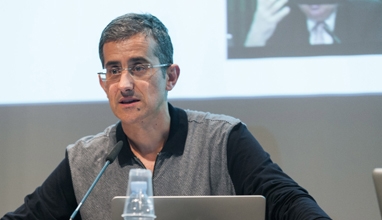
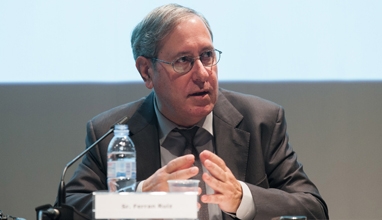
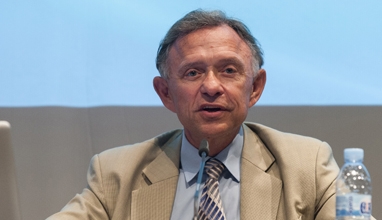
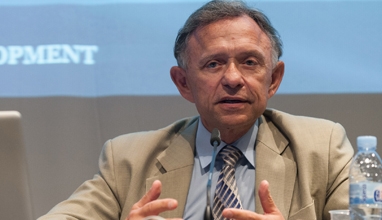
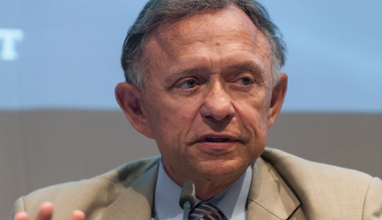
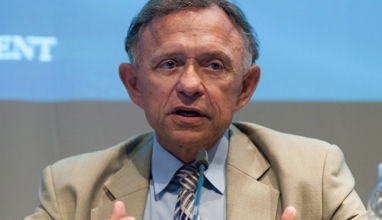
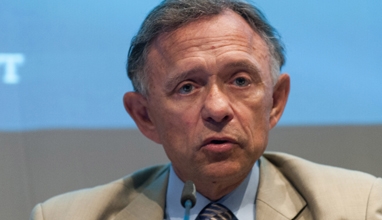
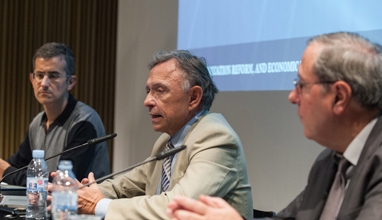
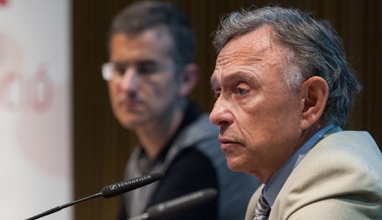
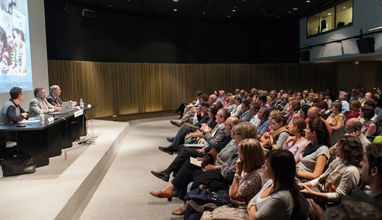
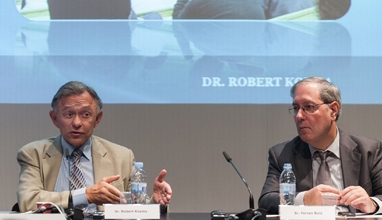
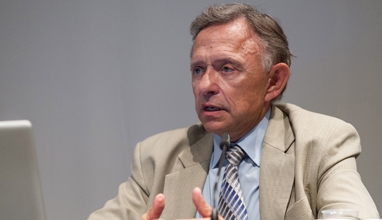
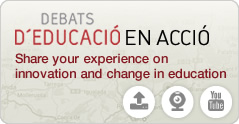
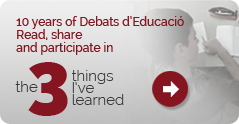

 The texts published on this website are, unless otherwise indicated, covered by the Creative Commons Spain Attribution - Non Commercial - No Derivs 3.0 licence. You may copy, distribute and transmit the work, provided you attribute it (authorship, journal name, publisher) in the manner specified by the author(s) or licensor(s). You may not use the material for commercial purposes. You may not transmit any derivative work from this material. The full text of the licence can be consulted here:
The texts published on this website are, unless otherwise indicated, covered by the Creative Commons Spain Attribution - Non Commercial - No Derivs 3.0 licence. You may copy, distribute and transmit the work, provided you attribute it (authorship, journal name, publisher) in the manner specified by the author(s) or licensor(s). You may not use the material for commercial purposes. You may not transmit any derivative work from this material. The full text of the licence can be consulted here: